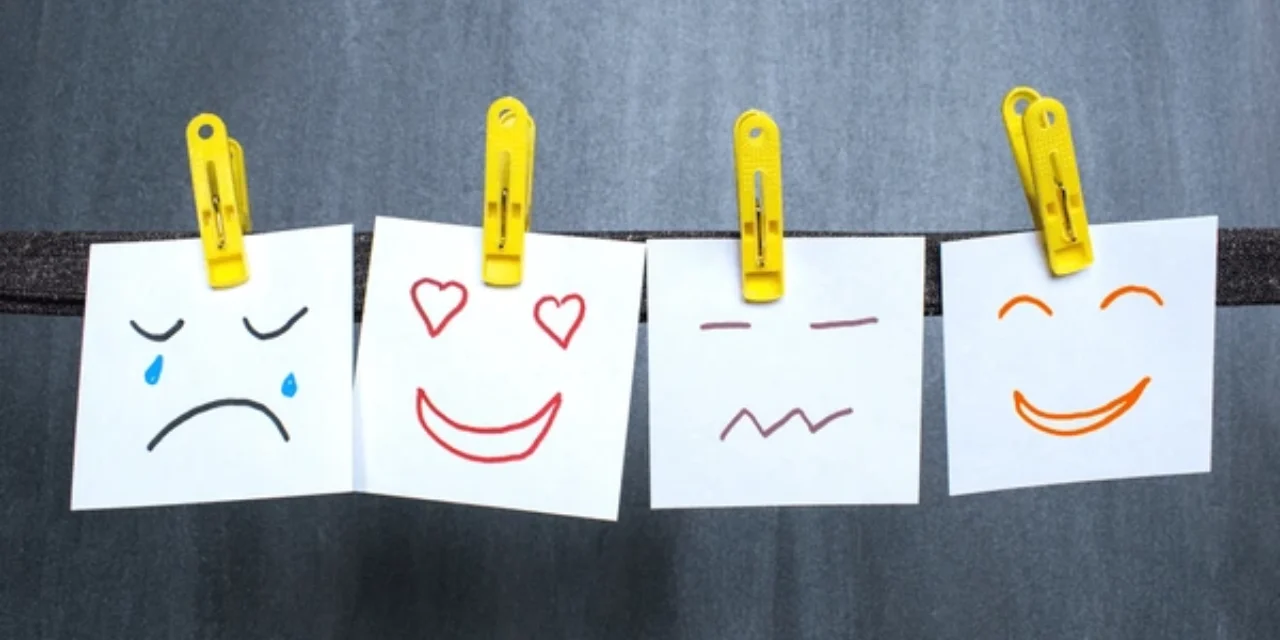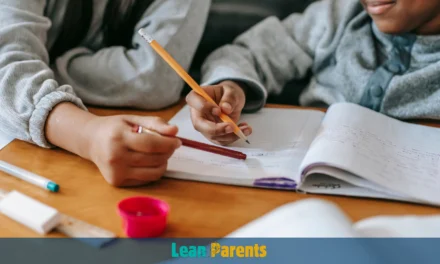Our emotions are a key part of who we are. They shape our experiences and guide our decisions. They also connect us to the world around us. Yet, we often struggle to fully acknowledge and validate our own and others’ emotions. Emotional validation is a vital skill. It can change our relationships, improve our mental health, and help us deal with life’s challenges more easily and with empathy.
Have you ever felt like no one understood you when you shared your feelings? That feeling of being unheard or unseen can be very isolating1. Emotional validation means learning about, understanding, and accepting another person’s feelings1. It’s about recognizing the value of someone’s thoughts, feelings, and actions, even if we don’t agree with them1. This simple act can deeply connect us and give us a sense of empowerment.
Key Takeaways:
- Emotional validation is the process of recognizing and accepting another person’s emotional experiences.
- Validation does not mean agreeing with someone’s emotions, but rather acknowledging their validity.
- Emotionally validated individuals feel heard, understood, and accepted, leading to better emotional management.
- Emotional validation can strengthen relationships, improve communication, and support mental health.
- Practicing emotional validation is a skill that can be developed and enhanced over time.
In a world that often tells us to hide our feelings, the importance of emotional validation is huge2. It’s key for healthy relationships and good parenting skills2. By learning to validate our own and others’ emotions, we can feel more worthy, build stronger bonds, and face life’s challenges with more resilience and kindness.
Understanding Emotional Validation and Its Core Principles

Emotional validation is key in psychology. It means understanding and accepting someone’s feelings. This process is vital for building strong relationships. It helps create trust and open communication3.
Validation means recognizing someone’s feelings or opinions as valid. It has two main types: self-validation and external validation3.
Defining Emotional Validation in Modern Psychology
In today’s psychology, emotional validation is seen as essential. It supports emotional health and communication3. It makes people feel less alone and more accepted3.
There are different kinds of validation, like emotional and intellectual. These help improve overall well-being3.
The Role of Validation in Human Relationships
People want to feel connected and understood. Validation helps achieve this, making relationships stronger4. It builds trust and encourages open communication4.
When people feel validated, they work better together. This creates a positive work environment4.
Key Components of Emotional Support
Emotional validation includes listening, empathy, and acceptance without judgment3. These elements make people feel valued and respected. This is crucial for their well-being3.
Validation helps people feel they belong. It meets basic human needs, improving mental health and relationships3.
| Levels of Validation | Description |
|---|---|
| Paying Attention | Actively listening and being present with the person. |
| Reflecting Back | Summarizing and mirroring the person’s emotions and experiences. |
| Reading Minds | Anticipating and responding to the person’s unspoken thoughts and feelings. |
| Understanding | Demonstrating a deep comprehension of the person’s perspective. |
| Acknowledging the Valid | Recognizing the legitimacy of the person’s emotions and experiences. |
| Demonstrating Equality | Treating the person as an equal and validating their worth. |
Marsha Linehan’s work shows how validation supports and empowers people4. While some invalidation can be good, correcting big mistakes is key4. Emotional validation makes relationships better, improves communication, and boosts well-being34.
Why Emotional Validation Matters in Daily Life
Emotional validation is key in our daily lives. It helps us manage our daily emotions and build stronger interpersonal relationships. Feeling accepted and understood prevents feelings of isolation or shame, which can harm our emotional health.
Regular validation boosts self-esteem and emotional regulation. It creates a supportive environment for personal growth and mental well-being.
The longest study on happiness shows that connection is key to happiness and longevity5. Memory decline can start early without dependable close relationships5. Emotional validation makes friendships safer, happier, and boosts self-esteem5.
It helps us handle tough tasks better without affecting our mood5. But, ignoring someone’s feelings can hurt physically and mentally, causing heart rate increases and less engagement5. Talking about negative experiences with friends who don’t care can also raise heart rates5. Women with such friends may age faster5.
Psychologist Marsha Linehan says validation is vital for emotional well-being5. A 2022 study showed big emotional improvements when feelings of shame or sadness were validated6. But ignoring emotions can lead to mental health issues like mood and anxiety disorders6.
In summary, emotional validation greatly impacts our lives. It improves our interpersonal relationships, emotional health, and overall well-being. By accepting and recognizing our and others’ feelings, we build a more supportive society56.
| Validation Technique | Impact |
|---|---|
| Validating responses during challenging tasks | Less impact on mood and performance |
| Practicing validation in friendships | Enhanced feelings of safety, happiness, and self-esteem |
| Validating emotions of individuals experiencing shame or sadness | Significant positive emotional improvements |
“Validation plays a crucial role in emotional regulation according to psychologist Marsha Linehan.”5
Men are less likely to share emotional struggles with friends. But, resources like the 988 mental health hotline and local services like 503-988-4888 in Multnomah County offer support6. A YouTube video, “It’s Not About the Nail,” has over 23 million views, illustrating emotional validation6.
Understanding emotional validation’s importance in our daily lives helps us build stronger interpersonal relationships and better emotional health. This skill leads to a more compassionate and supportive society for everyone.
The Science Behind Emotional Validation

Psychological research7 shows that emotional validation greatly improves mental health. It helps people manage their feelings, especially when they’re feeling very down7. People who feel validated tend to have higher self-esteem and feel less anxious or depressed8.
Psychological Benefits of Validation
Validation is key for those with emotional regulation disorders, like borderline personality disorder7. It makes people feel understood and connected, which boosts happiness and life span8. The longest study on happiness found that connection is the biggest factor in well-being8.
Impact on Mental Health and Well-being
Validation also makes people feel safer and more involved8. When they share negative feelings and get validated, they feel better about themselves and are less aggressive8. On the other hand, not feeling validated can make heart rates go up and make people feel less safe and less engaged8.
Understanding emotional validation helps us build better relationships. This is good for our mental health and overall happiness. Embracing emotional validation is a powerful way to grow personally and improve our connections with others78.
Common Signs of Emotional Invalidation
Emotional invalidation can show up in many ways. It might mean ignoring someone’s feelings or criticizing how they feel. Statements like “You’re overreacting” or “It’s not a big deal” are common examples. These can make someone feel ashamed, doubt themselves, and struggle to handle their emotions9.
Knowing the different ways people invalidate emotions is key to better support and communication. Some ignore you when it matters, while others just argue9. Others might try to control you or not care about your interests9.
It’s also about not accepting someone’s feelings or rushing to fix problems without listening9. Some think their feelings are the only ones that matter9. Being aware of these behaviors can help improve relationships9.
Emotional invalidation can upset the balance in a relationship, causing uncertainty and self-blame10. Those who often deny their partner’s feelings may have deep-seated shame10.
Invalidation can be hidden in casual conversations, making it hard to spot10. It might be used to hurt someone’s self-esteem for fun10. But, feeling validated is crucial for happiness and connection in a relationship10.
By recognizing these signs, we can work on creating better, more supportive relationships. Learn more about why you and others might invalidate your feelings9.10
How Emotional Validation Strengthens Relationships
Emotional validation is key for building trust and better communication in relationships. It shows acceptance and understanding of each other’s feelings. This creates a supportive space where both feel heard and valued11.
This emotional safety is vital for mental health. It shows a deep sense of belonging in the relationship11.
Building Trust Through Validation
When partners validate each other’s emotions, trust and connection grow. Validation means understanding the context, past experiences, and biological factors behind emotional reactions.11 This empathetic approach makes a safe space for open expression. It reduces feelings of shame or aloneness from invalidation11.
Emotional validation strengthens relationships. It shows a willingness to be vulnerable and support each other.
Improving Communication Between Partners
Effective communication is crucial for a healthy relationship. Emotional validation plays a big role in this. Openly expressing emotions and having them accurately listened to and validated is a crucial two-step process.11
Validation helps calm heightened emotions in partners. It builds emotional capital and fosters a collaborative, not defensive, dynamic12. Practices like reflective listening, open-ended questioning, and expressing empathy help validate a partner’s emotional experience12.
Overall, emotional validation is a powerful tool for relationship building, trust, and effective communication. It creates a safe, supportive environment. Here, both partners feel heard and understood. This enhances their bond and helps them face challenges with more emotional resilience1112.
Parental Emotional Validation and Child Development
Parental emotional validation is key for a child’s growth. It helps kids learn to manage their feelings and build self-esteem13. This approach makes kids feel secure and understood, teaching them that their feelings matter14.
This can prevent problems later on and help kids become resilient13.
But, emotional validation needs care. Parents must find the right balance. Too much focus on feelings can overwhelm sensitive kids13. Some actions, like not setting limits, can make things worse1314.
| Key Findings | Data Source |
|---|---|
| 3 decades dedicated to supporting children’s social and emotional well-being | 13 |
| Instances of overwhelming children and escalating dysregulation | 1314, |
| Children using big feelings to extend bedtime and avoid tasks | 1314, |
| Negative impact on parents when unable to meet all emotional needs | 13 |
Parent-child interaction affects sleep too. Kids might stay up late because of emotional talks13. Parents can also feel stressed when they can’t meet all their child’s emotional needs13.
“Consistent failure to pay attention to a child’s emotions, thoughts, and bodily sensations in a family environment can inadvertently reinforce emotional dysregulation.”15
Parental emotional validation is a fine line, but it’s vital for a child’s well-being. By mastering this, parents can help their kids grow strong and emotionally smart131415.
The Connection Between Self-worth and Emotional Support
Emotional support and validation are key to building self-worth and confidence. When we get consistent validation for our feelings, it shows us our emotions matter16. This helps us feel more confident and valued.
Building Confidence Through Validation
Validation boosts confidence and self-esteem16. But, seeking constant approval can lower self-esteem. On the other hand, self-validation can reduce fear of rejection by 60%16. Learning to validate ourselves helps us feel more resilient and true to ourselves.
Overcoming Self-doubt
Self-doubt can hold us back. But, emotional support and validation can help us overcome it16. People who were once rejected or invalidated might seek approval too much. Yet, with validation, they can break free and find their true worth.
Emotional support and validation are crucial for self-worth, confidence, and emotional strength17. By practicing self-validation, like daily affirmations, we can grow our self-awareness. This leads to a deeper sense of self-worth.
| Benefit | Percentage |
|---|---|
| Reduced fear of rejection and dependence on external validation | 60% |
| Improvement in overall well-being and sense of self-worth | 80% |
| Individuals with history of childhood invalidation developing people-pleasing behaviors | 65% |
| Individuals with narcissistic or antisocial behavior struggling with low self-esteem | 70% |
| Individuals seeking constant approval and validation reporting lower self-esteem | 85% |
Practicing Emotional Validation in Daily Interactions
Adding emotional validation to your daily talks can make relationships stronger and improve emotional health. Emotional validation means listening well, showing empathy, and accepting feelings without judging18. Doing this often helps create a supportive space for everyone involved19.
Active listening is a big part of emotional validation. It’s about really focusing on the other person and trying to see things from their point of view20. Saying things like “I can see why you’d feel that way” makes them feel understood18.
Showing empathy is also key. It’s about understanding how the other person feels and showing them you get it19. This makes it safe to talk openly, leading to better conversations and solving problems together19.
Working on your empathy skills and active listening in your daily communication can really help your relationships. It also makes everyone feel better emotionally1820.
“Validation is a communication skill that can improve relationships by showing acceptance and respect for the other person’s feelings and perspective.”18
By using emotional validation in your daily talks, you can make stronger, more caring connections. This helps create a kinder and more understanding world for all182019.
Validation Techniques for Parents and Caregivers
As parents and caregivers, we shape our children’s emotional growth. Emotional validation is key to stronger family bonds and resilience in our kids21.
Age-appropriate Validation Methods
Validating feelings needs to match our child’s age and stage. Young ones might need us to name their emotions and offer comfort21. Older kids benefit from active listening and helping them understand complex feelings21.
Creating Safe Spaces for Expression
Regular family meetings or check-ins create a safe space for kids to share22. This open talk builds trust and emotional security in the family23.
By validating our kids’ feelings, we boost their emotional smarts and resilience21. It boosts their self-esteem, makes them feel heard, and helps them form good relationships21.
It’s crucial to meet our kids where they are and offer a judgment-free space for them to express themselves22. With patience and practice, we can better support our children’s emotional growth and improve family communication23.
| Validation Technique | Description | Benefits |
|---|---|---|
| Naming Emotions | Identifying and verbalizing a child’s emotions, particularly for younger children | Helps children recognize and communicate their feelings, fostering emotional intelligence |
| Active Listening | Attentively listening to a child’s perspective and reflecting back what they’ve shared | Demonstrates understanding, builds trust, and encourages open communication |
| Compassionate Guidance | Providing support and suggestions for managing emotions in a caring, non-judgmental way | Teaches healthy coping strategies and reduces the risk of emotional dysregulation |
| Creating Safe Spaces | Establishing regular check-ins or family meetings for open emotional expression | Fosters emotional security, strengthens family bonds, and promotes healthy communication |
Catia Fath, NCC, LPC, a certified counselor with over 20 years of experience, stresses the importance of emotional validation for kids’ mental health21.
“Validating a child’s feelings helps build their self-esteem, enables them to feel understood, and fosters the development of positive relationships with others.”
By using these validation methods daily, we can help our children grow emotionally, improve family communication, and create a caring environment for all2322.
The Impact of Emotional Invalidation on Mental Health
Emotional invalidation can deeply affect our mental health, causing emotional trauma and various disorders. Research shows that being ignored as a child can lead to serious issues later in life. This includes borderline and narcissistic personality disorders24.
Being emotionally unavailable as an adult can also stem from childhood neglect. This can increase the risk of narcissism24.
Childhood invalidation can make adults react strongly to stress, possibly leading to borderline personality disorder24. Those who were ignored as kids may face many emotional and psychological issues. These include feeling empty, lonely, guilty, and anxious24.
People who were emotionally ignored as children might act selfishly and struggle to control their emotions. They may find it hard to connect with others and offer comfort24. It’s important to recognize and deal with these patterns to stay mentally healthy.
A study with 86 participants showed that feeling ignored can lower happiness and increase stress25. It makes people more vulnerable to future emotional challenges25.
This study used a special method to understand how emotional invalidation affects us in real time25. It found links between emotional invalidation and many health issues, including eating disorders and marital problems25.
In summary, emotional invalidation can lead to serious mental health problems and relationship issues. It’s vital to understand and address these patterns to improve our mental health and build strong relationships.
Professional Settings and Emotional Validation
Adding emotional validation to work places can really boost the culture and well-being of employees26. Ways to do this include training managers to listen well and show empathy. Also, making sure everyone feels heard in feedback is key26. Leaders who care about feelings can make a workplace better, leading to happier workers, stronger teams, and more done26.
Workplace Implementation Strategies
First, we must see how important emotional validation is at work26. Employers should pay for training that teaches managers to listen and care about feelings26. An open-door policy lets people share their feelings without worry, building trust26. Making sure feedback is validating helps people feel good about themselves, boosting their drive26.
Leadership and Emotional Support
Leaders who focus on emotional validation can really help their teams26. When managers show they care about feelings, it makes people feel part of the team and trusted26. But, ignoring feelings can cause big problems, with 85% saying they’ve felt ignored at work27.
Creating a culture of emotional validation lets teams feel safe to try new things and share openly26. This makes the whole company better, as happy and supported workers are more engaged and loyal26.
| Emotional Validation in Professional Settings | Impact |
|---|---|
| Increased emotional security and trust among employees | 2780% of employees felt more emotionally secure at work when their boundaries were respected and validated by coworkers and superiors. |
| Improved workplace relationships and communication | 2790% of employees believe that emotional invalidation has a negative impact on workplace relationships. |
| Enhanced job satisfaction and productivity | 26A successful workplace environment where emotional validation is present leads to increased productivity, motivation, cooperation, and creativity among employees. |
| Reduced employee turnover and burnout | 26Workers experiencing invalidation in the workplace may exhibit symptoms like defensiveness, decreased creativity, fear of risk-taking, and increased turnover. |
By focusing on emotional validation, companies can make a better work place. This leads to happier employees, stronger leaders, and better results26.
Cultural Perspectives on Emotional Validation
In today’s world, knowing about cultural differences in emotional validation is key. Cultural differences, global communication, and cross-cultural empathy are important. They help us understand how people see and deal with emotional validation.
Different societies value emotional expression and validation in different ways. Some cultures encourage open emotional sharing, while others stress keeping emotions hidden28. For example, Asian Americans often use strategies to control their emotions more than European Americans28. They also tend to suppress their emotions, which can be good for their mental health in certain cultures28.
These differences in emotional expression and control greatly affect global communication. They change how people see and react to emotional validation29. Studies show that people are better at understanding and feeling emotions with those from their own culture29.
It’s vital to adjust how we validate emotions to fit cultural norms but still offer real support30. For example, in Western cultures, changing how we think about things can help with negative feelings. But in East Asian cultures, keeping emotions hidden is often seen as better30. Knowing these differences helps us be more empathetic and communicate better across cultures.
| Cultural Perspective | Approach to Emotional Validation | Implications |
|---|---|---|
| Western/Individualistic | Emphasis on open emotional expression and cognitive reappraisal | Better psychological health outcomes when using cognitive reappraisal |
| East Asian/Collectivistic | Preference for emotional suppression to maintain group harmony | Emotional suppression not as harmful for psychological and social functioning |
By understanding and valuing these cultural differences in emotional validation, we can improve cross-cultural communication and empathy. This helps strengthen our global connections and understanding282930.
Overcoming Barriers to Emotional Validation
Starting the journey of emotional validation can be tough. You might feel uncomfortable with emotions, not know how to handle them, or have habits that ignore feelings31. To get past these hurdles, it’s key to reflect on yourself, be empathetic, and improve your emotional smarts31.
It’s important to learn to spot and fight off thoughts that dismiss others’ feelings31. When you want to brush off someone’s emotions, take a moment to think of a kinder way to respond31. This change can make your relationships stronger and help you grow personally31, as you get better at emotional validation and talking32.
If emotional validation is hard for you, getting help from a therapist or counselor could be a smart move31. A mental health expert can teach you how to validate emotions better and tackle any emotional issues31. By doing this, you’re not just improving your own life but also helping those around you grow emotionally32.
FAQ
What is emotional validation?
Why is emotional validation important in daily life?
How does emotional validation impact mental health and well-being?
What are the signs of emotional invalidation?
How does emotional validation strengthen relationships?
How does parental emotional validation impact child development?
How is emotional validation connected to self-worth?
How can emotional validation be practiced in daily interactions?
What are the consequences of emotional invalidation on mental health?
How can emotional validation be implemented in professional settings?
How do cultural differences affect emotional validation?
What are the common barriers to emotional validation?
Source Links
- What You Can Do to Help Others Feel Validated
- What Is Emotional Validation? And How to Practice It
- Let’s Talk About… Validation
- Top Leadership Skills: Practising Validation In the Workplace
- The Power of Validation
- The Importance of Emotional Validation
- The who and what of validation: an experimental examination of validation and invalidation of specific emotions and the moderating effect of emotion dysregulation
- The Power of Validation
- Feeling Invalidated By Your Partner?
- Recognizing the Pain of Emotional Invalidation
- Emotional Validation
- Validation in Relationships: The Secret To Greater Trust and Emotional Connection
- How The Obsession With Validating Feelings Is Failing Our Children (and resulting in less, not more, emotional regulation) — Child Development and Parent Consultation
- Do Parents Always Need to Validate Children’s Feelings?
- Emotional validation: A fundamental need in childhood and adolescence
- The Trap of External Validation for Self-Esteem
- DBT Self-Validation | Boost Self-Worth and Confidence
- Validation: Show you’re listening—even if you disagree
- The Importance of Emotional Validation – Connections Counseling
- The Power of Active Listening and Validation in Elementary School: Enhancing Social Emotional Learning | Everyday Speech
- How to Validate Your Child’s Feelings | Creating Connections Counseling
- How to validate your child’s feelings: Six steps for parents and caregivers – CHOC – Children’s health hub
- Validating Your Child’s Feelings: the How’s and Why’s
- How Childhood Invalidation Affects Adult Well-Being
- Perceived Emotion Invalidation Predicts Daily Affect and Stressors
- Validation: Meeting Emotional Needs in the Workplace | Affordable Quality Counseling
- Understanding Emotional Invalidation and Setting Effective Boundaries
- Culture and emotion regulation – PMC
- Emotion Recognition across Cultures: The Influence of Ethnicity on Empathic Accuracy and Physiological Linkage
- Frontiers | Cultural Differences in Interpersonal Emotion Regulation
- How to Make It Easier for Your Partner to Validate You
- A Step by Step Guide to Validating Emotions and Feelings | Tuuli Vahtra





